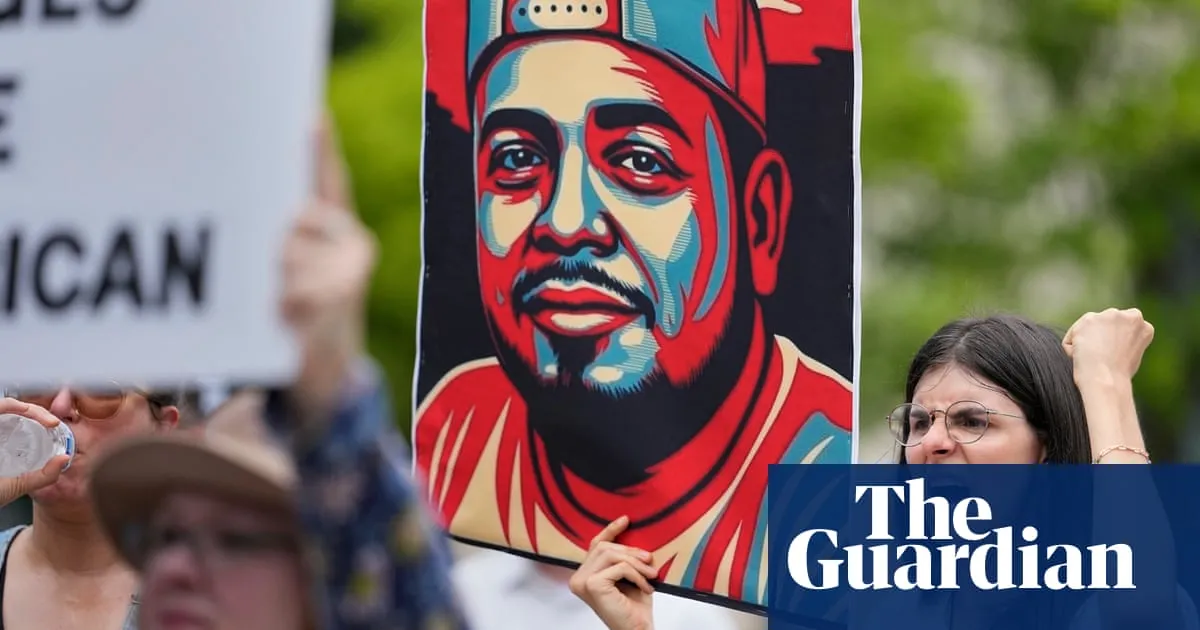
Kilmar Ábrego García, a Maryland resident, recently emerged as a key figure in a shocking legal case involving wrongful deportation and severe human rights abuses. According to newly filed court documents, Ábrego García was wrongfully deported to El Salvador, where he endured physical and psychological torture during his three-month detention in one of the country's most notorious prisons, known as the Terrorism Confinement Center (Cecot).
While held at Cecot, Ábrego García and 20 other detainees were subjected to inhumane treatment. The court papers reveal that the men were forced to kneel for extended hours, specifically from 9:00 PM to 6:00 AM. Guards reportedly maintained a brutal environment, striking anyone who fell from exhaustion, leading to severe physical strain. The court filing indicates that Ábrego García was denied access to a bathroom during this period, resulting in him soiling himself.
The conditions in Cecot were nothing short of horrific. Detainees were crammed into overcrowded cells devoid of windows and enduring constant bright lights around the clock. They were confined to metal bunk beds without mattresses, which exacerbated their suffering. The testimony provided by Ábrego García sheds light on the dire conditions within Cecot, a facility that human rights organizations claim is designed to "disappear" individuals.
In a startling account, Ábrego García's lawyers noted that he lost a staggering 31 pounds during his first two weeks in custody. The situation took a peculiar turn when he and four other detainees were later transferred to a different section of the prison. Here, they were photographed with mattresses and provided better food, leading to accusations that these images were staged to depict improved living conditions.
Despite the harrowing experience, prison officials recognized that Ábrego García was not affiliated with any gangs. The court documents reveal that officials explicitly stated, “your tattoos are fine,” indicating that his tattoos did not imply gang membership. Furthermore, he was kept in a separate cell from those accused of gang affiliations. However, prison officials threatened to transfer him to a cell with known gang members, warning that they would "tear him apart."
Currently, Kilmar Ábrego García is in federal custody in Nashville, Tennessee. The previous administration, led by Donald Trump, initially claimed it had no power to repatriate him from El Salvador, but ultimately brought him back to the U.S. Ábrego García faces human-smuggling charges, which his attorneys argue are an attempt to rationalize the administration's grave error in deporting him.
On a recent Sunday, a Tennessee judge ordered his release while his criminal case is pending. However, prosecutors indicated that U.S. Immigration and Customs Enforcement (ICE) would detain him again, potentially leading to another deportation before he could stand trial. Adding to the confusion, a Justice Department lawyer, Jonathan Guynn, informed a federal judge in Maryland that they would deport Ábrego García to a third country instead of El Salvador, contradicting earlier statements by Attorney General Pam Bondi.
Amid these developments, Ábrego García's legal team has requested that he remains in criminal custody, fearing that any release would result in immediate deportation. Upcoming hearings in both Maryland and Tennessee will be crucial in determining whether Ábrego García can stay in the United States and secure his freedom. As the case unfolds, it highlights ongoing issues related to wrongful deportation and the treatment of individuals in detention facilities.